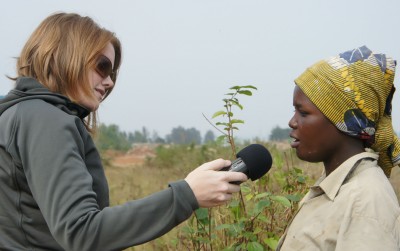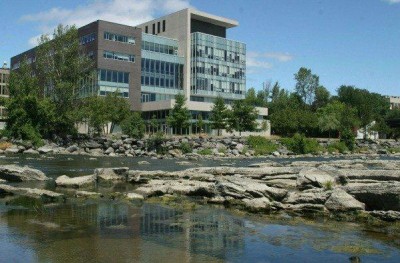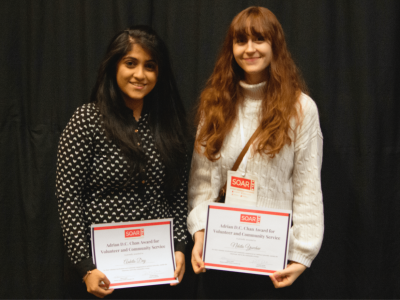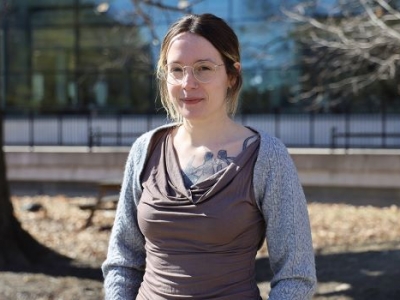This term, the School of Journalism and Communication hosted an Open House to showcase its brand new facilities in the River Building.
Alexandra Boyd, who is pursuing her Master of Journalism (MJ) degree, says: “I seem to work mostly in radio and TV these days, and those are areas where having the latest technical know-how is really important. So having access to brand new edit suites and production studios has been really great.”
Grad student Brielle Morgan says the new facilities are night and day compared to the old studio in St. Pat’s: “As a technical TA working with (the amazing) Dave Elliott, I get to play around with some of the new toys: lighting, cameras, editing software and suites, etc. With all the new equipment and the clean, open design of the building, it’s a professional atmosphere.”
Boyd originally chose to do an MJ at Carleton, “because if you want to pursue journalism in Canada, there are few places better than Carleton. I also knew that I wanted to travel as much as possible during my degree, and Carleton offered a lot of great opportunities for that.”
Morgan was living in Gangnam, Seoul, Korea (”Yes that Gangnam,”) when she chose to come to Carleton. She said that Carleton’s African connections were a big draw.
Both grad students ended up being part of Carleton’s Interns in Africa program that funded students to intern at various media outlets and media development projects.
Boyd’s research took her to Rwanda where she looked at how ideas about disability are changing.
“Because of their history, they’ve had to grapple with disability in a way that most other countries really haven’t,” says Boyd. “A brutal genocide has meant that, for awhile, they had a lot of people who had disabilities resulting from the violence. Furthermore, after the genocide, lots of Rwandese returned home and brought new ideas about what disability means with them.”
Boyd continues: “As a result, ideas around disability rights are really starting to take off. But it’s easier said than done. Although the country is currently in a phase of rapid development– which is opening up a lot of opportunities for a lot of people– the question of whether people with disabilities will be able to take part in that is still up in the air.”
Morgan recalls one particular story she wrote about LGBTI refugees who moved to South Africa because of the constitutional protections it offers. “In my research, I came across several stories about journalists who had received death threats for poking their nose into this issue,” shares Morgan. “The limits on freedom can be crippling.”
Last summer, she shadowed several tour groups in Kibera, a Nairobi slum known to be the biggest in East Africa. Now, she is turning the conversations she had with tourists, guides and locals into a radio documentary. It’s all part of her research project that is looking at whether critics are right in calling slum tourism “exploitative”.
Another issue that struck her was the lack of resources. “At A24 Media, where I interned, there were two cell phones for an office of 20+ people. People shared everything: phones, computers, flash disks, headphones, etc.”
Chris Waddell, director of the School of Journalism and Communication says: “At Carleton, we’re very fortunate to have our new resources and facilities as this will give our journalism students a competitive advantage wherever they decide to practise after they graduate.”





